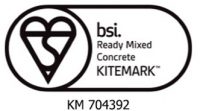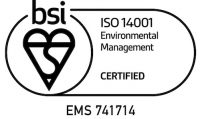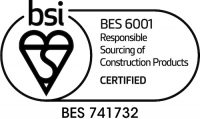Everyone is familiar with concrete. One of the most commonly used, versatile building materials in the world, it has existed in various forms for centuries and, today, is used for a huge range of structures – from homes and commercial buildings to motorways, pathways and patios.
However, one important feature of concrete which many people are unaware of is how environmentally friendly it is. Concrete is, in fact, one of the best, most natural building materials to use when considering the environmental impact of construction and can actually help to protect our natural resources, earning concrete its place as the building material of choice for sustainability.
Local Transportation
One of the reasons concrete is such an ecological building material is because the raw materials used to make it are sourced from the UK. Therefore, in comparison with other construction materials which are imported from across the world, concrete is both supportive of local business and good for the environment as transportation emissions are incredibly low.
In addition, aggregates and concrete are usually produced locally. Greenspec, a company who promote ‘green’ building materials and construction processes, estimate that there is an off-site ready mix concrete plant within ten miles of every UK construction site, minimising the cost of the concrete’s final transportation – in terms of both fuel costs and energy and CO2 emissions.
Use of Recycled Materials
Concrete contains a variety of recycled materials, including the by-products of manufacturing and power plants. Portland cement, for example, is manufactured from limestone, clay, sand and fly ash (a residue generated in the combustion of coal). Similarly, aggregates are made from a number of reused waste products, such as sand, gravel, crushed stone and concrete from demolition products and blast furnace slag from steel mills.
Many materials that would otherwise be deposited in landfills can also be used in the production of concrete. Combustible waste, such as scrap tyres for example, can be used as fuel source in the cement manufacturing process.
Durable and Long Lasting
An incredibly durable building material, concrete creates structures which are built to last. Unlike wood, for example, which can rot and decay and is susceptible to natural disaster, concrete requires little or no maintenance and can stand up to the toughest winds, the harshest of weather conditions and the most ferocious fires with ease.
Not only is this great for the consumer – as you are purchasing a product which will last for an incredibly long time – but it is also incredibly beneficial for the environment as it reduces construction waste.
Future Reuse
Furthering its sustainability, concrete can often be reused following a demolition project. Concrete structures that have reached the end of their service life can be stripped, recycled and refurbished into new materials. Many high quality aggregates, for example, contain old concrete which has been crushed and reused, dramatically extending the life of the concrete and enhancing its ecological benefits.
For more information on the benefits of concrete, and to discuss your concrete needs with a professional, get in touch with the experts at EasyMix today.



